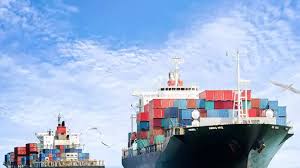India seeks mechanism under RCEP to increase levies once imports exceed set limit

Business Today - 19 September 2019
India seeks mechanism under RCEP to increase levies once imports exceed set limit
By Anilesh S Mahajan
As other 15 countries on the negotiations for the Regional Comprehensive Economic Partnership (RCEP) mount pressure on India to commit for this mega-free trade agreement, Commerce Minister Piyush Goyal reiterated India will protect its interests before signing on the dotted line.
In the recent round of negotiations, India pushed to include the Automatic Trigger Safeguard Mechanism or ATSM. This will automatically increase levies once imports cross a given threshold. This is in addition to reviewing the Free Trade Agreement (FTA) with ASEAN and other members.
ATSM is considered as an effective tool in balancing trade among multilateral partners. It was also part of the trans-pacific partnership, TPP, negotiations before the Donald Trump Administration pulled out from it. ATSM becomes critical, especially after New Delhi’s experiences with FTAs and fear that RCEP too will open up gates for imports, especially products from China. ATSM was not part of earlier agreements.
The provisions are that once imports breach the pre-identified trigger; ATSM will be applied without any other assessment. This is a takeoff from the existing FTAs and other trade agreements; where anti-dumping, safeguard duty mechanism and circumvention duties require domestic industry to prove an injury to business. By the time duties are in place it can cause a lot of damage in the local market.
There is yet no clarity on how the pre-identified trigger will be determined, along with the duty structure. The World Trade Organization, WTO allowed respective sovereigns to determine effective tariff rates within bound rates agreed by member countries.





